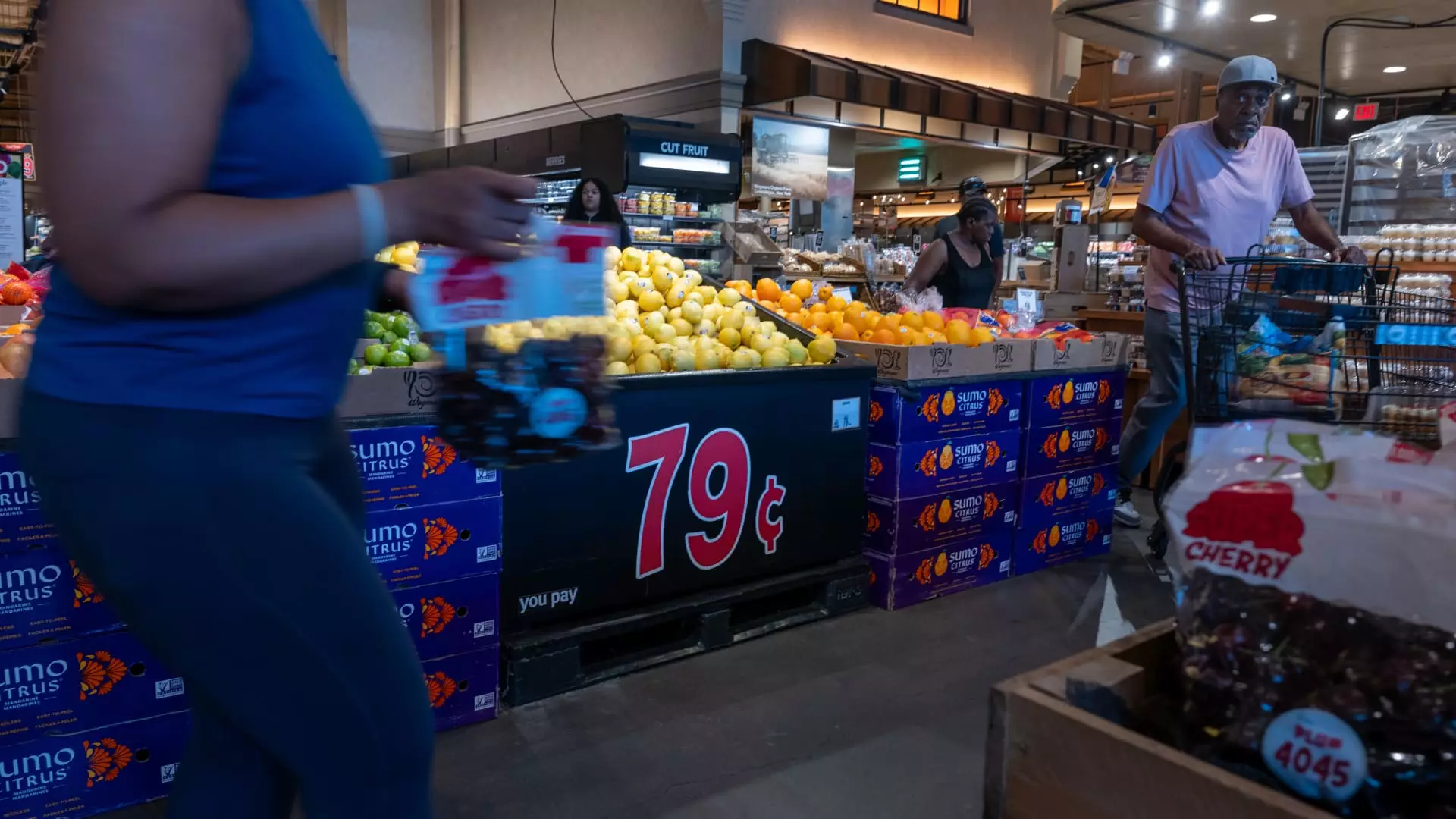In July, consumers displayed growing confidence in the outlook for inflation over the coming years. The New York Federal Reserve report released on Monday revealed that respondents foresee inflation remaining elevated in the next year before receding in the subsequent years. Notably, the three-year perspective from the Survey of Consumer Expectations showed a decrease in expected inflation to 2.3%, marking a significant decline from the previous month. This reduction to the lowest level in the history of the survey, which dates back to June 2013, reflects a shift in consumer sentiment towards a more subdued inflation outlook.
The findings of the survey come at a time when investors are closely monitoring inflation trends and the potential actions of the Federal Reserve. The persistence of elevated inflation could influence the Fed’s decisions regarding interest rates, with speculations arising about a possible rate cut in the near future. Economists emphasize the importance of consumer expectations in shaping inflation outcomes, as changes in consumer behavior in response to anticipated price increases can impact overall inflation levels.
While the medium-term outlook showed signs of improvement, expectations for inflation on one- and five-year horizons remained unchanged at 3% and 2.8%, respectively. Despite this, the survey highlighted some positive developments in inflation projections. Respondents anticipated a lower increase in gas prices at 3.5% over the next year, along with a modest decrease in the expected rise in food prices to 4.7%. Additionally, household spending forecasts indicated a slight decline to 4.9%, signaling cautious consumer sentiment amidst the inflationary environment.
Varied Expectations Across Different Sectors
The survey revealed contrasting expectations for different expenditure categories. While projections for medical care, college education, and rent costs saw an upward trend, other categories experienced moderation. College costs were expected to rise by 7.2%, reflecting a substantial increase from the previous month. Rent costs, a particular concern for Federal Reserve officials, were projected to increase by 7.1%, highlighting the challenges in curbing housing-related inflation.
Despite a rising unemployment rate, consumer expectations related to employment remained positive. The perceived likelihood of job loss in the next year decreased to 14.3%, indicating a greater sense of job security among respondents. Moreover, the expectation of voluntary job transitions, a proxy for confidence in labor market opportunities, showed an uptick to 20.7%. This increase to the highest level since February 2023 suggests growing optimism among workers regarding career prospects.
The evolving landscape of consumer inflation expectations provides valuable insights into the dynamics of the economy. By closely monitoring consumer sentiment and adjusting policy measures accordingly, policymakers can better navigate the challenges posed by inflationary pressures and ensure sustainable economic growth.

Leave a Reply